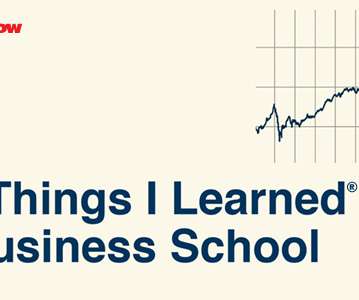101 Things I Learned in Business School
Leading Blog
MAY 21, 2021
B USINESS is not a discipline, but an endeavor made up of disciplines such as accounting, communications, economics, finance, leadership, management, marketing, operations, psychology, sociology, and strategy. perpetually exceed the cash receipts from the previous, smaller sales volume.













Let's personalize your content